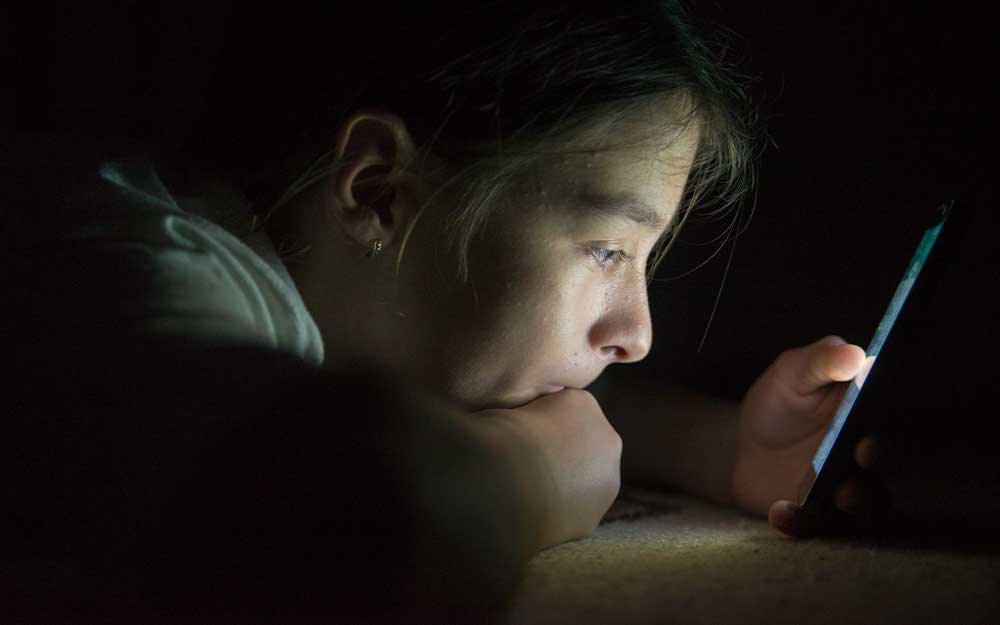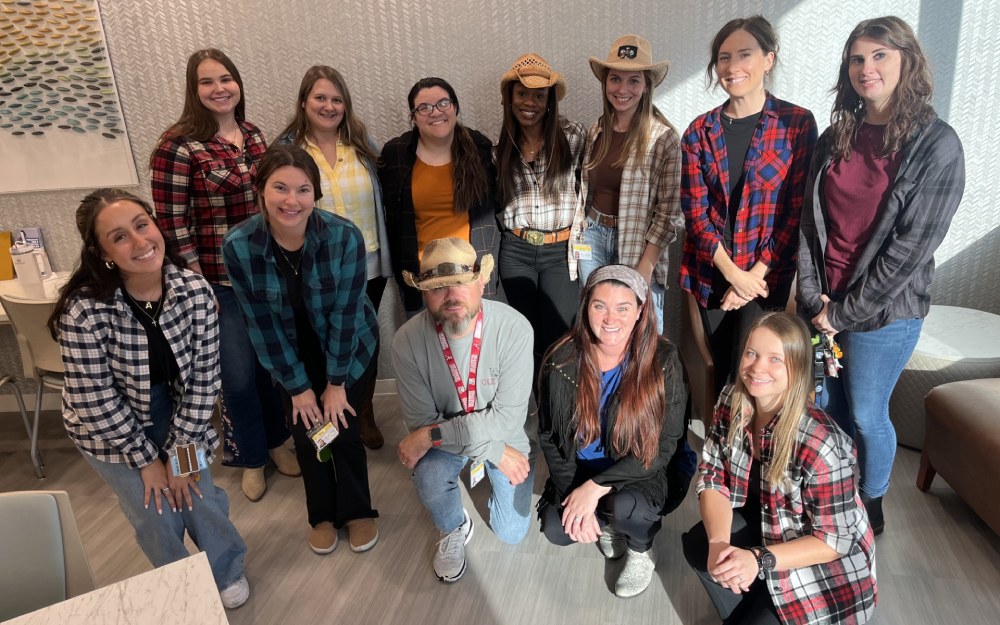
‘Not a true picture of reality’: Social media use incorporated into new Eating Disorder Recovery protocol
08/14/24 12:00:pm
While social media can connect us around the world, it doesn’t always give us a clear picture of it.
“I really want people to be aware that what they’re seeing in social media is not just a random sampling of what’s out there. What they’re seeing is not a true picture of reality,” says Nicole Stettler, PhD, executive director of the Eating Disorder Recovery service line. “It’s like comparing your blooper reel to someone else’s highlight reel.”
Social media use has been linked to negative outcomes, such as body dissatisfaction, sleep problems, depression, and poor self-esteem.
Nearly always at our fingertips, social media apps and all their seemingly endless feeds of images, videos, and messages are now pervasive across generations, but ways to address their potential negative impacts aren’t as easily found.
That’s what Dr. Stettler found through her research putting together a new protocol for Rogers’ Eating Disorder Recovery service line.
“In pretty much every manualized, evidence-based eating disorder treatment, there is no focus on social media and media in general,” she says. “The existing frameworks are great, but they just haven’t caught up with the times that we’re living in.”
The newly developed protocol, set to be live across adult Eating Disorder Recovery programs by the end of August, has a section focused on social media’s possible effects and how to more effectively use apps to promote a happier, more balanced life. That includes a staff guide and patient workbook with content and activities that can be used in individual or group sessions.
“Social media is such a part of all our lives that it feels relevant to everyone, but I think it’s particularly relevant for patients with eating disorders, because there are so many pervasive messages about eating, diets, body weight and shape, and healthy eating,” Dr. Stettler says, adding that the new protocol takes into account that not all patients with eating disorders struggle with body image, but can still be impacted by social media. “There are a lot of opportunities for unhealthy comparison.”
The workbook chapter includes activities such as questioning the authenticity of posts, understanding the reasons we use social media and possible alternatives, aligning use with your values, curating your social media feeds to reduce unhealthy posts while bringing in more recovery-oriented content, and determining how social media can add to your life rather than detract.
“We included a whole section on algorithms and how, while we have some control over what shows up in our feeds, the algorithm will feed us more of whatever we pay attention to. We focus on really thinking strategically about dismissing and swiping past content we don’t want in our feeds,” Dr. Stettler says. “Finding a healthy approach to social media is not about taking something away, but instead incorporating something else that’s more meaningful.”
She says the new protocol will help patients see the role social media plays more clearly.





